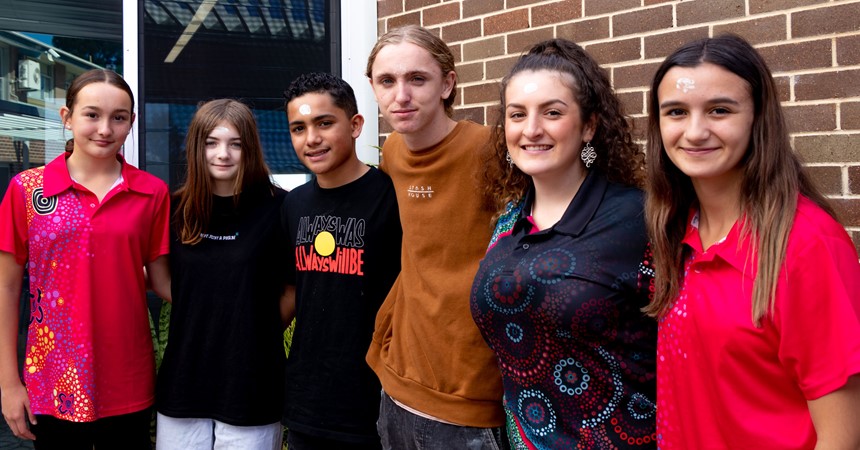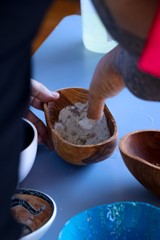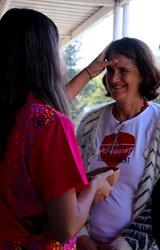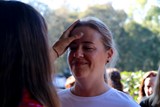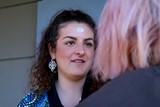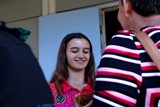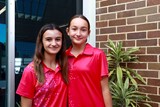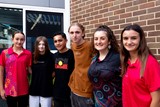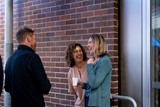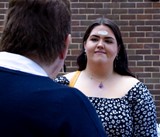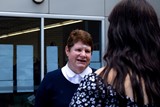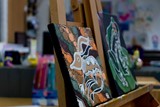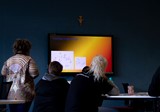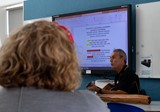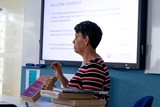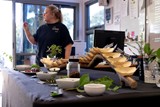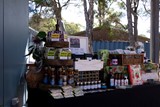Back in 2018, a conversation at St Paul’s Catholic College, Booragul, determined “something was missing” from our classrooms. It related to our understanding of Aboriginal and Torres Strait Islander culture.
In 2019, a team of St Paul’s Catholic College students started a journey of bringing that conversation to life.
Louise Campbell, Aboriginal Education Officer, Teaching & Learning Services-Curriculum, Catholic Schools Office, and Astro Stewart, School Officer, Indigenous Education Strategic Initiatives Program at St Paul’s, provided an opportunity for those students to actively engage and speak out at the Eighth Aboriginal and Torres Strait Islander Catholic Education State Conference.
The Maitland-Newcastle Diocese hosted the conference and encouraged St Paul’s teachers to join the students on the journey.
In 2020, St Paul’s launched its Reconciliation Action Plan (RAP) through the Narragunnawali platform. Narragunnawali supports schools and early learning services in Australia to develop environments that foster a high level of knowledge and pride in Aboriginal and Torres Strait Islander histories, cultures, and contributions.
The St Paul’s RAP gives credence to the journey on which all members of the college’s community should embark. And now, in 2021, St Paul’s has staged the “8 Deadly Ways to Lead” day, allowing those students to explore their cultural understanding and to challenge what they may have known or thought they knew. “If you take something, then put something back,” is the motto.
“8 Deadly Ways to Lead” enables students to seek a valid connection in their own right to traditional knowledge, place, or land. It is an act of reconciliation. Through this engagement with the ways of Aboriginal peoples and places, we can forge strong, productive relationships with Aboriginal and non-Aboriginal students.
Respect is more than tolerance and inclusion. It requires dialogue and collaboration. We need to be able to bring Aboriginal and Torres Strait islander knowledge to the front of our awareness and develop metalanguage to explain it and use it in cross-cultural contexts.
Brid Corrigan, Leadership & System Improvement, Catholic Schools Office, says St Paul’s is leading the way in working towards reconciliation.
“I hope that our other secondary schools will follow in developing a reconciliation statement for their schools,” Ms Corrigan says. “There is much to be gained through our schools working together to find ways forward to support our Indigenous students and to support our communities in closing the gap.”
Education involves becoming conscious of what we don’t know. But we also need to ensure we are conscious of what we already know, and perhaps challenge that in ourselves.
Aboriginal understanding is the catalyst to draw this out, for creation and a different way of thinking. It is learning through culture, not just about culture.
Centralising the strengths of our students requires us to decentralise our power as educators in the classroom. To do this we need to be culturally safe, culturally welcoming, and culturally competent educators. We must consider our professional training and our social conditioning.
“8 Deadly Ways to Lead” gifted St Paul’s with the perspectives of those who carry the traditions of care for country and care for peoples. They have held it for time immemorial just for us; all of us, no matter where our ancestral journeys may have begun.
Among many other achievements, but most recently the 2021 Senior Citizen of the Year, Miriam-Rose Ungunmerr-Baumann from the Aboriginal people of the Daly River region in the Northern Territory brought “dadirri” (da/did/ee) to our conscience. Translation: an inner deep listening; a quiet still awareness; a waiting.
Archie Roach, Aboriginal singer and songwriter says dadirri does wonders. “For a person to just be still and listen to someone else talk about their life and how they probably came through things,” he says. “You never know what you’ll learn.”
Keeley Gayler from our 2020 HSC cohort spoke often about the importance of opening up the dialogue for not only Aboriginal students but for all young people in our classrooms.
She wants us to have conversations, and if we have it “wrong” that is OK because at least we are talking about culture and history, the land and connection. In doing this we are on our way to being culturally safe, welcoming, and competent.
I hope today you find your da/did/ee ...
“Wamanbila” (wom/an/bila) – let’s go.
